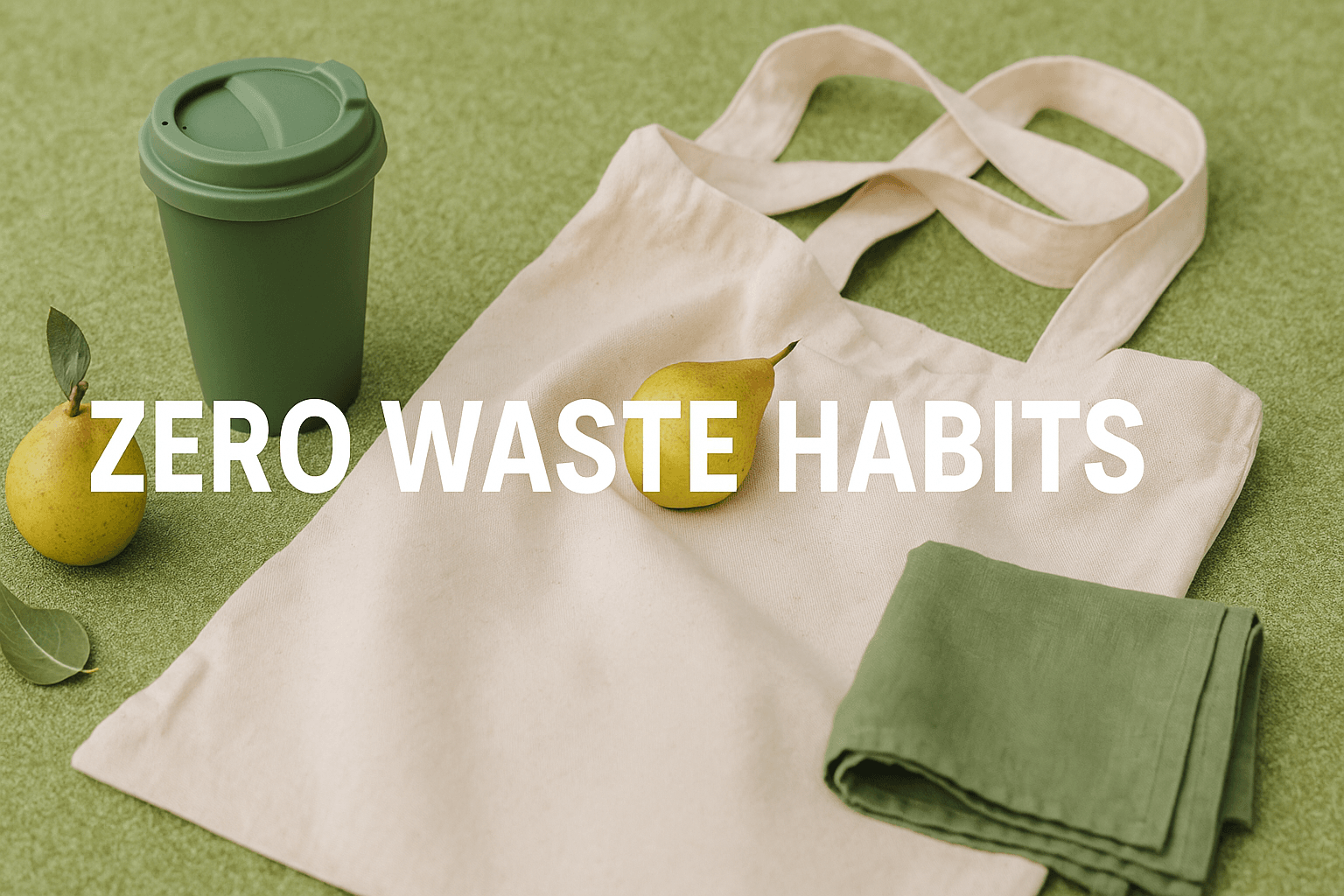🌱 Introduction: Zero Waste—An Urgent Mission for All of Us
Have you ever felt shocked by how much trash you produce daily?
From takeaway containers to plastic packaging, single-use waste surrounds us — and it’s harming our planet.
Zero waste is no longer a niche lifestyle. It’s a necessary global movement toward sustainability and mindful consumption.
This post will unpack what zero waste truly means and share 3 practical zero waste habits you can start today.
Because small, consistent actions can create powerful ripple effects for the planet.
♻️ What Does Zero Waste Really Mean?
Zero waste isn’t about eliminating every piece of trash — it’s about rethinking consumption and following the 5R Principles:
| Principle | Meaning | Practical Example |
|---|---|---|
| Refuse | Say no | Decline single-use plastics like straws or flyers |
| Reduce | Consume less | Avoid overbuying, minimize clutter |
| Reuse | Use again | Carry a tumbler, repair items instead of replacing |
| Recycle | Sort properly | Clean and separate recyclables correctly |
| Rot | Compost | Turn food scraps into compost |
💡 Key Insight:
Recycling comes after prevention. Reducing waste at the source is far more impactful than perfect recycling.
🌎 Why Zero Waste Matters
The trash we throw away doesn’t disappear — it travels, pollutes, and accumulates.
- Plastic Pollution: Plastics take centuries to decompose and enter our food chain as microplastics.
- Resource Depletion: Every product consumes energy, water, and raw materials to produce and ship.
- Climate Change: Waste and overproduction emit greenhouse gases, worsening global warming.
Adopting zero-waste habits isn’t about doing everything perfectly — it’s about breaking the destructive cycle of consumption.
👉 Related read: Sustainable Minimalism: How Less Can Mean More
💬 Common Misconceptions About Zero Waste
❌ “Zero waste means producing no trash at all.”
✅ Reality: It’s about reducing unnecessary waste wherever possible.
❌ “It’s too expensive or time-consuming.”
✅ Reality: It often saves money — think reusable cups, bulk buying, secondhand items.
❌ “It’s only for hardcore environmentalists.”
✅ Reality: Anyone can start small. Collective action drives real change.
🌿 3 Simple Zero Waste Habits for Beginners
1️⃣ Start with Small Daily Habits
- Bring a tumbler: Skip disposable cups and save money at cafés.
- Carry a reusable bag: Keep one in your car, backpack, or purse.
- Use a handkerchief: Cut down on paper waste and protect trees.
👉 You might also enjoy: Morning Rituals of Highly Creative People — learn how mindful habits shape daily balance.
2️⃣ Transform Your Kitchen — The Biggest Waste Producer
- Join the BYO Container Challenge: Bring your own containers for groceries and takeout.
- Buy in bulk & store smartly: Use glass jars or stainless-steel tins for storage.
- Switch to natural sponges: Replace plastic scrubbers with loofah or coconut-fiber options.
🛒 Affiliate Suggestions:
3️⃣ Create a Plastic-Free Bathroom
- Solid shampoo & soap bars: Reduce plastic bottles, last longer, and travel-friendly.
- Bamboo toothbrushes: Biodegradable and durable.
- Eco-friendly toothpaste refills: Minimize packaging and avoid harsh chemicals.
🛒 Shop Sustainable Bathroom Essentials:
🌍 Going Beyond: Sustainable Living for the Long Term
Once these zero-waste habits become routine, take it further:
- Shop secondhand: Reduce demand for new production.
- Support ethical brands: Choose transparency and fair-trade products.
- Recycle smartly: Follow local recycling guidelines to avoid contamination.
👉 Related read: The Future of Eco Design: Why Sustainability Is the New Luxury
🌱 Conclusion: Small Steps Create Big Change
Zero waste is not about perfection — it’s about progress.
Start small: bring your tumbler, carry a reusable bag, or switch to a bamboo toothbrush.
Each small habit builds momentum. Together, our choices can lead to cleaner oceans, healthier communities, and a thriving planet for generations to come. 🌏
